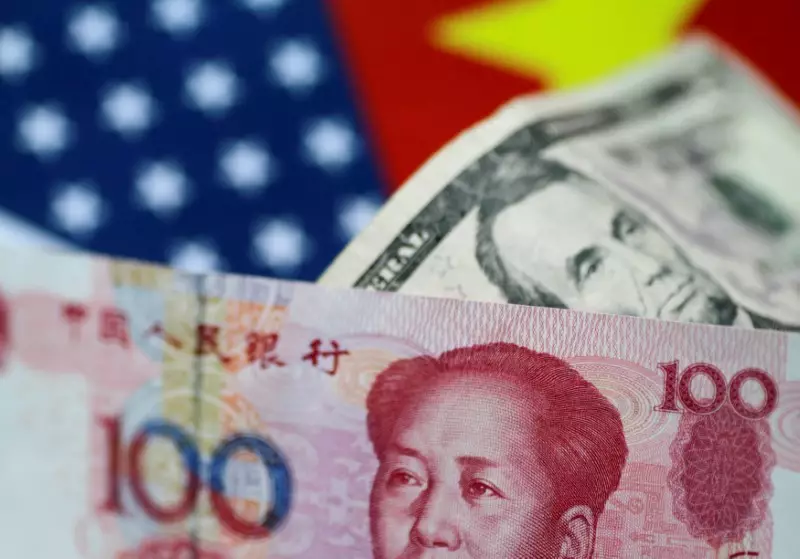As the political landscape shifts with Donald Trump’s imminent inauguration, financial analysts are gearing up for potential turbulence in the foreign exchange markets. UBS, a prominent Swiss bank, has suggested that clients position themselves by going long on the USD/CNY pair. This advice comes at a time when Trump’s administration is expected to influence economic policies significantly, with a particular focus on trade relations, especially with China. Investors are keenly aware that such shifts could have profound implications for currency valuations, making this a critical moment to assess risk.
While it is too early to predict Trump’s immediate actions, UBS analysts have expressed skepticism about the implementation of substantial tariffs on day one. Despite this cautious optimism, the bank notes that the currency markets remain unprepared for the possibility of aggressive tariff strategies in the future. The expectation is that talks of tariffs could continue to be a significant driver of market sentiment, particularly concerning the Chinese yuan (CNY). Analysts emphasize that should tariffs materialize, they could exert considerable downward pressure on the yuan, influencing other pro-growth currencies like the euro.
As markets brace for the impact of Trump’s policies, volatility is anticipated to rise in the coming months. This outlook is underpinned by several factors, including diverging economic growth trajectories between the United States and other global economies. Specific country circumstances—such as those faced by the UK and Canada—further amplify market uncertainty. The uptick in option volatility indicates a growing apprehension among investors, as any adverse developments could escalate both actual and implied volatility across the foreign exchange landscape.
Recent trading reflects heightened tension within the USD/CNY pair, which has been hovering near the upper limits of its established range. UBS projects that once Trump’s tariff policy becomes clearer, the yuan could experience additional depreciation. This might prompt the People’s Bank of China (PBoC) to relax its grip on the currency, resulting in further downtrends against the dollar. A significant decrease in the CNY could also serve as a buffer against the adverse economic consequences of any potential tariff increases.
UBS recommends a strategic long position on the USD/CNY pair, suggesting that traders set a target range moving towards 7.50, alongside a prudent stop-loss at 7.20. Such positioning not only reflects a strategic response to anticipated market conditions but also points to a potential positive carry of 2.1% per annum. The evolving dynamics of China’s domestic economic indicators are expected to continue to dictate demand for the yuan, exacerbating pressures that could lead to capital outflows.
Ultimately, as Trump takes office, the financial world will watch closely to gauge how new policies will unfold and what ramifications they may have for international trade and currency stability. Understanding these factors will be crucial for investors who wish to navigate this unpredictable environment effectively.

